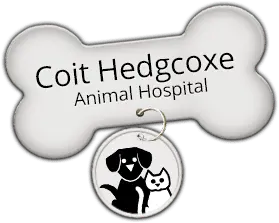February is Pet Dental Health Month! This is an especially important topic for those of you with dogs. Dental issues are quite widespread with our canine companions, but are unfortunately often overlooked. These problems are just as painful and dangerous for Man’s Best Friend as they are for us! Read on as a local Frisco, TX vet discusses some common dental issues in dogs.
Common Issues
Gum disease is probably the most prevalent dental issue we see in our canine pals. Over 80 percent of pups over the age of three are afflicted. This is quite concerning, as gum disease has been linked to some major medical issues, such as heart disease. Other common problems include cracked or broken teeth, misalignments, abscesses, and overcrowding. Be sure to have Fido’s teeth checked regularly. We recommend having this done at least once a year, starting around the time your four-legged friend is about a year old.
Warning Signs
Fido can’t make himself an appointment, and he can’t really tell you if his teeth hurt, so it’s up to you to watch for signs that something is off. Some of the common ones include bad breath, drooling, visible tartar buildup, bloody smears on toys and dishes, and swelling. You may also see your furry buddy chewing on one side of his mouth, drooling, and/or dribbling food. Of course, your pup may also seem a bit grumpy and or withdroawn. Toothaches aren’t much of a mood booster for anyone! Lack of interest in play can also be a sign that something is wrong.
Home Care
The best way to care for your canine companion’s teeth is to incorporate dental care into his regular routine. Brushing is just as effective for pets as it is for people! Of course, you’ll need to get your pooch on board with the idea. At first, just gently rub Fido’s gums and teeth with your finger. Then, you can incorporate doggy toothpaste and a toothbrush or finger brush. If your furry bff isn’t having it, ask your vet about other options. Products like dental flakes, oral rinses, and dental-formula treats and chews can all effectively help remove plaque. It’s also important to make sure that your dog always has fresh water and suitable chew toys.
Do you have questions about your dog’s health or care? Contact us at your local Frisco, TX pet clinic today!








